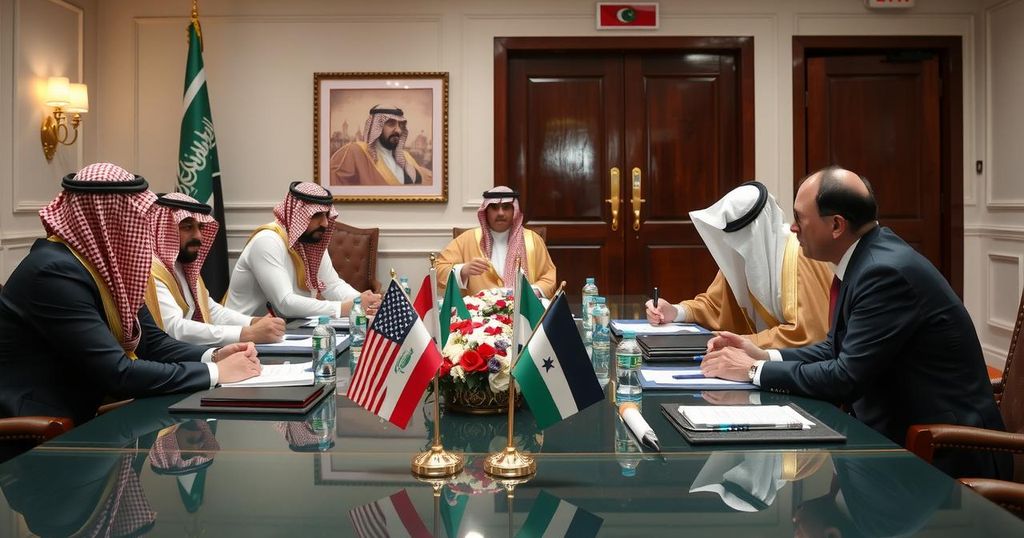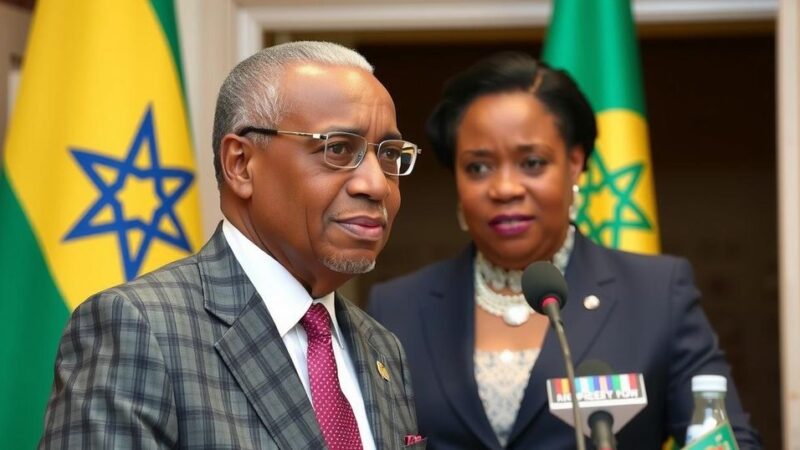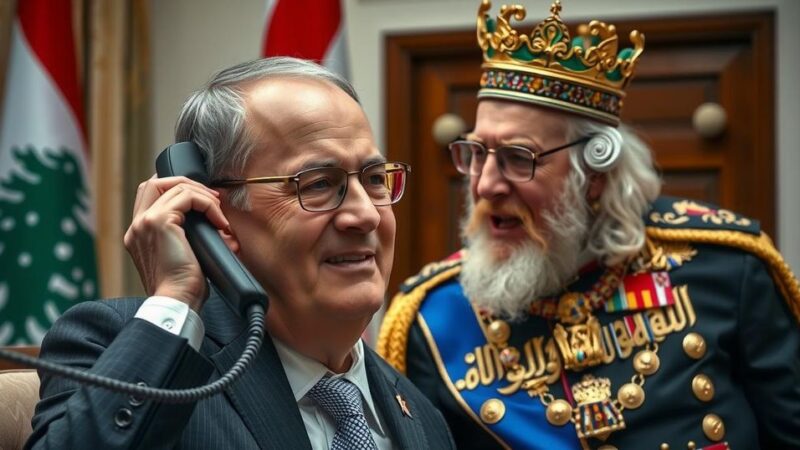Top diplomats from the Arab region and Europe are set to meet in Saudi Arabia to discuss the political landscape in Syria following the removal of Bashar al-Assad. The discussions will include Arab officials and a broader international representation, focusing on the prospect of sanctions relief contingent upon the establishment of inclusive governance by Syria’s new leaders. The ongoing conflict has devastated the nation, leading to immense humanitarian crises and dislocation.
High-ranking diplomats from the Arab world and Europe are convening in Riyadh, Saudi Arabia, on Sunday to engage in critical discussions regarding the situation in Syria. The agenda will unfold over two distinct sessions; the initial session will feature representatives from Arab nations, while the latter will incorporate an international perspective, including diplomats from Turkey, France, the European Union, and the United Nations, as detailed by a Saudi official on Saturday.
The meeting is particularly significant in light of Syria’s recent political shift following the removal of long-serving leader Bashar al-Assad by new ruler Ahmed al-Sharaa. Notably, this development has prompted calls for relief from sanctions imposed by Western nations, including the United States and the European Union, in response to the Assad regime’s violent repression of protests that escalated into a civil war starting in 2011.
The protracted conflict has had dire consequences, resulting in the deaths of over half a million individuals and displacing millions of Syrians, many of whom have sought refuge in Europe. The European Union’s foreign affairs chief, Kaja Kallas, cited the possibility of lifting sanctions contingent upon Syria’s new leadership making strides towards establishing a government that is inclusive and supportive of minority rights.
The ongoing conflict in Syria, which began in 2011, has led to vast humanitarian consequences, with significant loss of life and mass displacements. Following the overthrow of President Bashar al-Assad, the international community is recalibrating its stance and evaluating potential engagement with the new Syrian leadership. The discussions among diplomats aim to address the immediate needs for stability and the framework for future governance in Syria, amid concerns over human rights and the necessity of inclusivity in the political process.
In summary, the upcoming discussions among Arab and European diplomats in Saudi Arabia mark a pivotal moment in the ongoing efforts to stabilize Syria post-Assad. With the emergence of new leadership, there is a cautious optimism regarding the potential for lifting sanctions, contingent upon the establishment of a government that prioritizes inclusivity and the protection of minority rights. The outcomes of these talks may significantly shape Syria’s future pathway towards reconciliation and recovery.
Original Source: www.scmp.com






